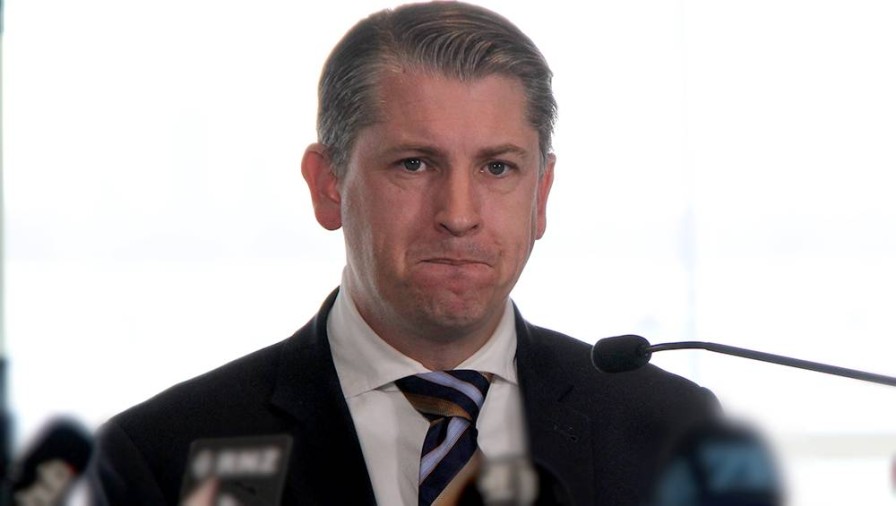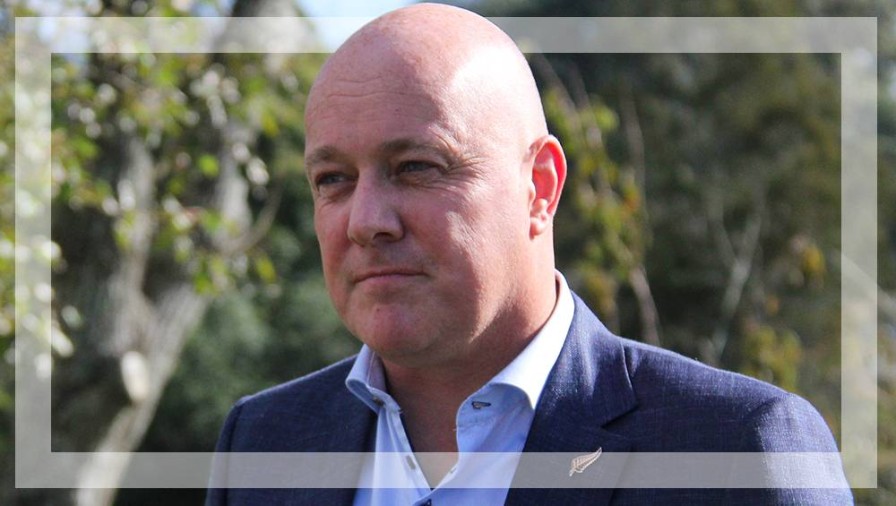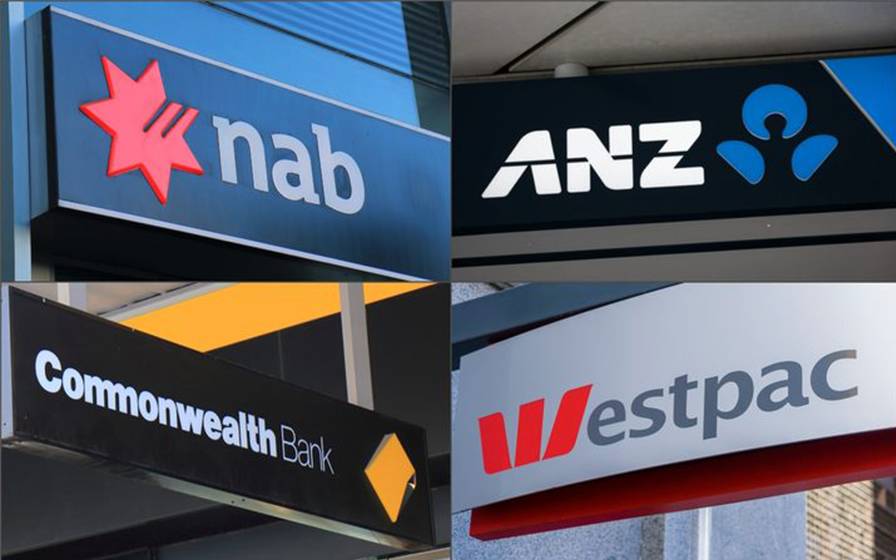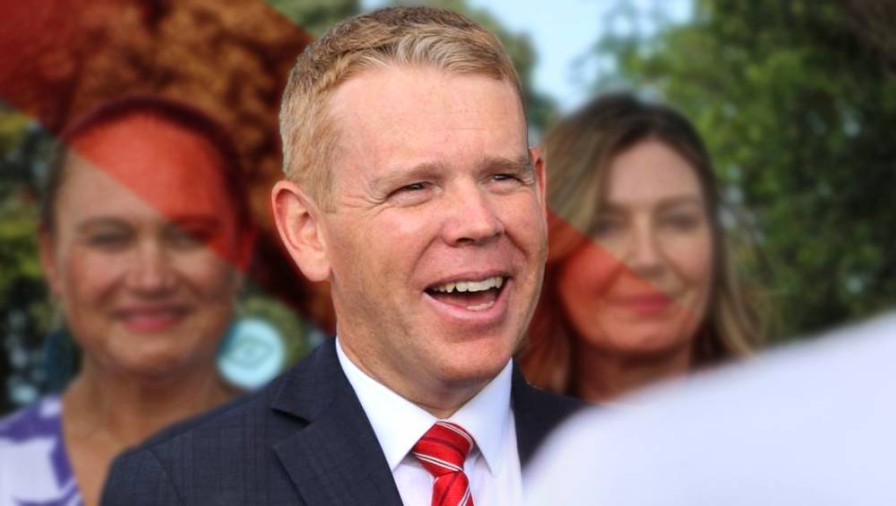Wood’s shares, National’s chances, and the banking study
ANALYSIS: Beehive insiders and others still cannot understand how Michael Wood let it get to this.
NBR political editor Brent Edwards speaks with Grant Walker.
ANALYSIS: Beehive insiders and others still cannot understand how Michael Wood let it get to this.
NBR political editor Brent Edwards speaks with Grant Walker.
When Prime Minister Chris Hipkins unexpectedly called a news conference for 1.30pm on Wednesday to discuss Michael Wood, it was clear Wood’s ministerial career was over, at least for the time being.
And so it proved, when an obviously exasperated Hipkins explained to journalists that Wood had further shares that he had not declared, on top of the already contentious shareholding in Auckland Airport. On that basis, Wood had no option but to resign, particularly after the Prime Minister had told him his position was untenable.
Anyone you speak to around the Beehive and beyond cannot understand how Wood let it get to this. As one former minister said, he was the last politician you would expect to get caught in this kind of pickle. Even now, there is no obvious or clear explanation for how Wood so persistently and blatantly ignored his potential conflicts of interest over owning shares.
There is now a roll call of ministers and former ministers who Labour Party members might call out if the party falls short of being able to form the next government. Wood has added his name to it.
What was revealed on Wednesday was that Wood had shares in Chorus, Spark, and National Australia Bank through the JM Fairey Family Trust, of which he is both a trustee and beneficiary.
Hipkins said Wood as Minister of Immigration made a decision to include telecommunications technicians on the immigration Green List following representations from the sector, including Chorus, seeking changes. As a shareholder in NAB, the parent company of the Bank of New Zealand, he sat round the Cabinet table as ministers discussed the market study into banking and never disclosed his interest.
“Despite repeated requests from the Cabinet Office and myself for Michael to manage his shareholdings, he has repeatedly failed to identify, disclose, and appropriately manage conflicts of interest,” Hipkins said.

Former minister Michael Wood.
It is a damning finding, even though no-one believes Wood was in any way seeking to personally gain from those interests. That is what makes it all the more strange. Despite receiving a dozen warnings from the Cabinet Office about his Auckland Airport shareholding, Wood sat on his hands.
Even if these additional shareholdings had not been discovered, it seems likely Wood would have had to resign anyway over his failure to properly declare his Auckland Airport shares in the Parliamentary Register of pecuniary and other interests. He only started declaring the shares from last year, having ignored them for every previous year he was in Parliament.
Having forced Meng Foon out as Race Relations Commissioner over not properly disclosing his interests, the Government could hardly have turned a blind eye to Wood’s misdemeanour. Any question about that though was well and truly gazumped by Wood having to own up to other shareholdings he had not declared either to the Cabinet Office or to Parliament.
On the back of Wood’s implosion, other ministerial misbehaviour, recession, and ongoing high inflation, the election result should surely be already settled. Yet despite a host of political factors to its advantage the National Party is still struggling to charge ahead of Labour. Under a range of polls, the two major parties are essentially neck and neck. With slightly less than four months to go to the election, neither the centre-right nor centre-left blocs have a decisive advantage.
NBR presenter Grant Walker asks: is it Christopher Luxon?
It is and it isn’t. Clearly Luxon’s leadership of the National Party has not excited voters in the way that Jacinda Ardern did as Labour Party leader, or indeed the way Chris Hipkins has in the few short months he has been leader and Prime Minister.

Despite lifting National in the polls Christopher Luxon’s leadership does not appear to resonate with voters.
Based on poll results, voters seem to have a more negative perception of Luxon than they do of Hipkins. Nevertheless, before Luxon became leader, National was polling in the 20s and now it polls comfortably in the 30s, with a strong chance it will lead the next government. Voters still, though, might be suspicious of National after its three years of sniping and internecine conflict between 2017 and 2020. It might just also be that they are not sold yet on the policies National is putting forward as the alternative government.
Equally, many of the issues political insiders think might be destructive for the Government – ministerial misbehaviour for one – might not figure so importantly in the minds of voters.
Walker then asks whether Luxon’s leadership is safe.
Given National’s polling – compared with where it was in 2020 – why would MPs move to dump him, given that would reopen old wounds and remind the public of just how divided National once was.
There might be some murmurings at the party’s annual conference in Wellington this weekend about how well National is going, but mainly expect plenty of euphoria as the party readies itself for the election campaign. Delegates have reason to leave the conference in high spirits because this year, unlike 2020, they do have a real chance of success.
Meanwhile, the Government announced its banking study this week, but critics suggested it was of limited value because it was only concerning personal banking and was not looking at business banking. Economist Cameron Bagrie – a former bank economist himself – suggested this smacked of politicking in election year.

The Government has announced a market study into the banking sector.
At the same time, legislation setting up the new supermarket commissioner passed its final reading this week, with Commerce Minister Duncan Webb saying it was another step in the plan to increase supermarket competition and bring down prices for consumers.
“Cost of living is a central issue we’ve focused on. We’ve used the knowledge gained from market studies to create meaningful change in the interest of Kiwis,” Webb said.
But change is slow, and voters won’t feel any benefits before the election.
Finally, if Chris Hipkins is sick of his Cabinet colleagues, he does get a week free of most of them as he heads to China on Sunday. He will, though, be accompanied by Trade Minister Damien O’Connor and Tourism Minister Peeni Henare and a 29-strong business delegation.

Prime Minister Chris Hipkins.
Promoting trade and business links will be a key objective of the trip but Hipkins will also get to discuss some meaty and intractable international issues with Chinese President Xi Jinping.
He might also ask the Chinese president how he deals with errant ministers.
Brent Edwards is NBR’s political editor.